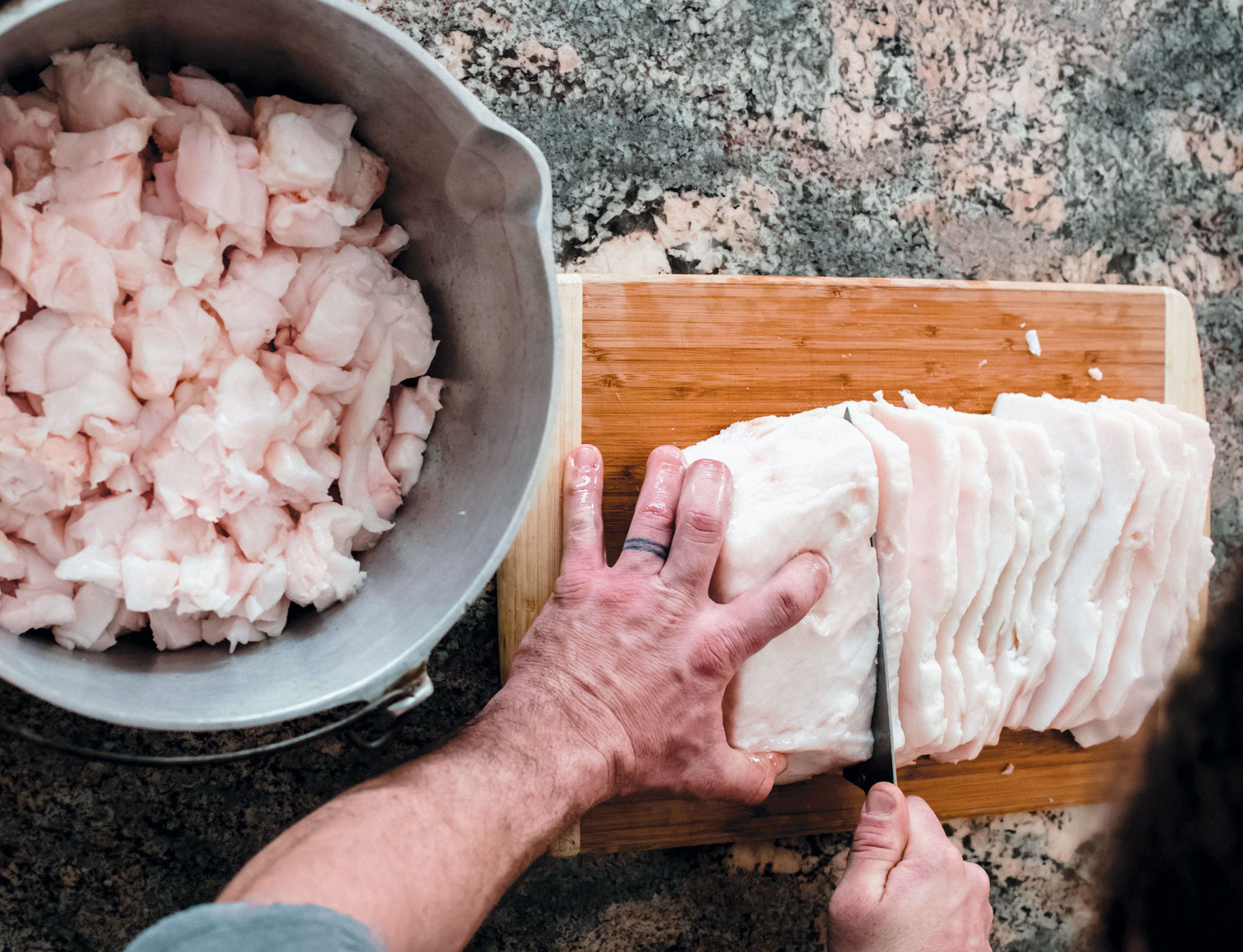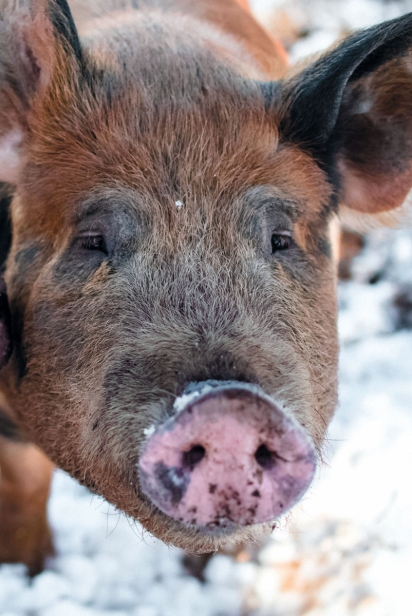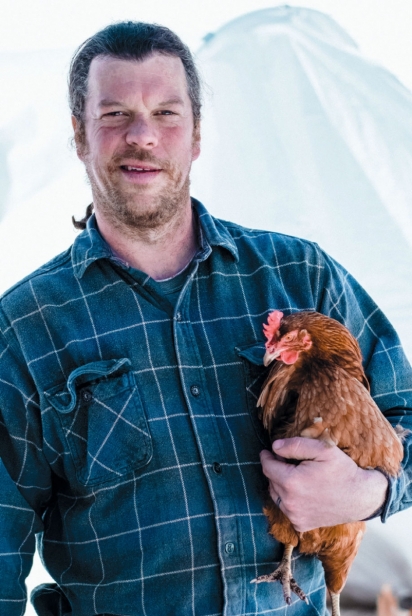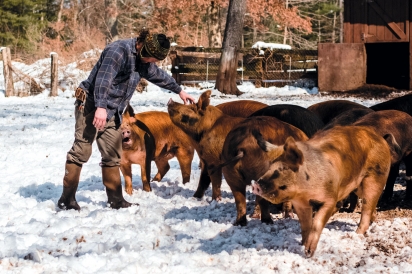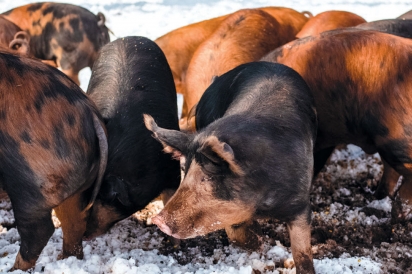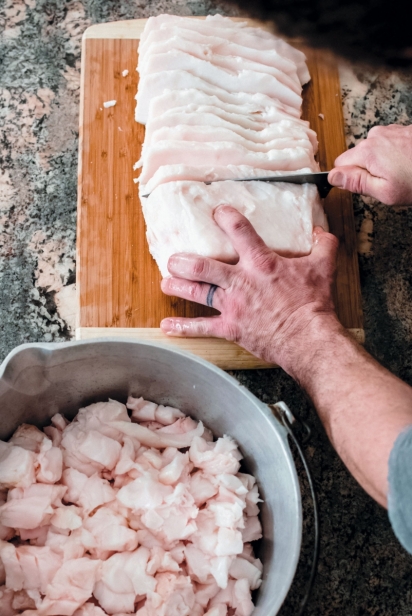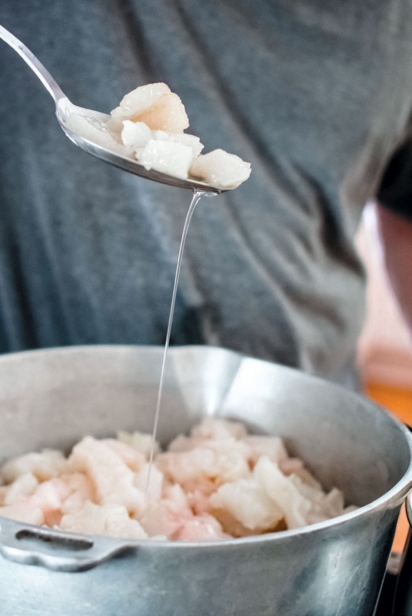More To Love About Lard!
It's not everyday you come across someone as enthusiastic and passionate about agriculture as Greg Hazleton of Copper Hill Farms, located in Somers. With a background in environmental liberal arts, Greg has been embodying a lifestyle that honors the pace of existence for himself and his animals, the value and the impacts we have on our ecosystems, the importance of taking part in our communities, and much, much more.
Greg’s education and experience from farming for nearly two decades has given him unique perspectives and insights into old practices and new. It’s this historical context that drives him to preserve methods such as cooking and baking with lard while championing awareness of its multifaceted benefits.
In his own words Greg explains…
"Lard - you either love it or you hate it. Before the the 1940’s, it was found in every single kitchen in our country, used for a variety of cooking, baking and even to shed light on that kitchen with an oil lamp or candle. Simply put, lard is rendered pork fat, cooked low and slow, until a fine liquid appears. Once jarred and refrigerated, that liquid takes on a creamy consistency, which is then used to replace butter/oils/Crisco for cooking and baking purposes.
Leaf Lard, specifically used for baking, is made from fat that is only found surrounding a pig’s kidneys. It is of a finer consistency, and when used in replacement of Crisco, will yield the ultimate pie crust, just like your Grandma used to make. The remaining fat on the pig (Fat Back), is used to create lard for cooking. Lard can be used instead of butter, margarine or cooking oils. There is nothing like cooking up scrambled eggs in a cast iron pan, greased with lard!
Now, you may be thinking, ‘Why would I want pork flavor in everything I cook?’ However, if lard is properly rendered (low and slow for 6-10 hours), it has very little pork flavor, especially once heated up.
Lard is close to 60% monounsaturated fat (higher than butter) and contains zero trans fats. The key point while seeking out lard, is that the pigs it comes from are pasture raised and alternatively fed. Pigs who live outside, eating naturally occurring feed sources (grass, bugs, dirt for minerals, etc.), along with non-grain feed sources (fruits and veggies, spent beer grains, organic/GMO free sources of corn, oats, barley, rice, etc.), will produce a much higher quality and tastier fat than that of a pig who is raised in a barn, only eating corn and soy processed grain. Certain heritage breed pigs (like Mangalitsa and Large Black - both found on Copper Hill Farm) are known as fat breed pigs, who produce more and higher quality fat.
As I mentioned earlier, lard was a staple ingredient in all pre-1940’s kitchens before the corporate invasion of cooking oils, margarine and Crisco. Not only did the factory food industry introduce these artificial and unhealthy alternatives, but they also started a war against natural fat, via mass advertising to the public. This corporate propaganda is still in full swing today, and the proof is in America’s misunderstanding of fat in general. Similar to liverwurst, the reaction I get to a jar of lard at a farmer’s market is either that of excitement and nostalgia (from the generation whose mothers or grandmothers used lard regularly), or that of disgust and confusion (from the misinformed or younger generation).
So next time you come across food cooked with lard, give it a shot! I’m sure you’ll be surprised!”
It’s evident that Greg's passions speak volumes and his products are edible proof. In addition to his regular farm chores, Greg runs the farm store at Copper Hill where he sells lard, as well as many other animal products and fresh produce Tuesdays and Thursdays from 4-6, and Sundays from 12-4. As the weather warms up, the store's hours will increase.
In another move to look forward to, Greg and his partner Howard Shafner plan to expand the store to include a certified kitchen where they will make, sell, and serve charcuterie options. With proper funding they will continue developing the location to allow for hosting of farm to table dinners as well. Yet despite the progressive expansion of the farm, they continue to support their local farmer's market, particularly Ellington Farmer's Market, where 2019 will see their 10th year of participation! Because no matter the growth of Copper Hill Farms the most important message that Greg emphasizes and demonstrates is that no matter how big or small your vision is, it’s key to, "think globally, act locally.” And, of course, to eat more farm fresh lard.
Copper Hill Farm & Farm Store is located at 144 Hall Hill Road in Somers / Follow @CopperHIllBeyondOrganic


